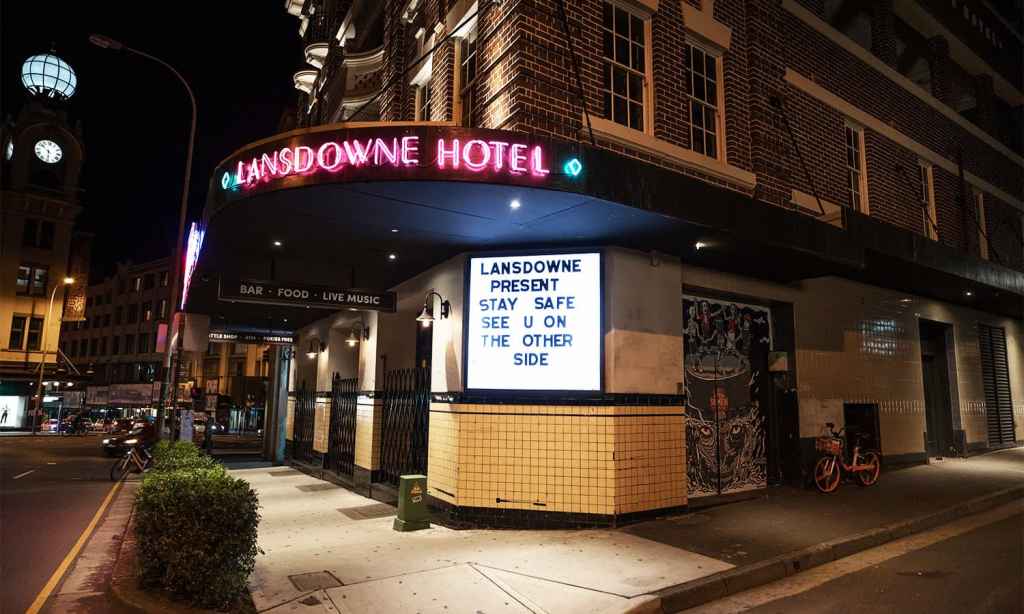News announced yesterday that vaccinated people in NSW will have some freedoms returned to them when the state hits 70 per cent vaccination was a welcome relief for many but experts are worried the move could be too premature.
Health experts have expressed concerns that the plan appears to be driven more by business considerations than public health.
Fully vaccinated people will be able to visit gyms, pubs and households while large gatherings at stadiums and theaters will also be permitted, subject to capacity caps. While Premier Gladys Berejiklian stressed that there is no fixed date for the return, NSW is expected to reach 70 per cent full vaccination around 18 October.
It’s a cause for celebration for many Sydneysiders, who are currently in their 11th week of lockdown, but Grattan Institute health economist Stephen Duckett has said that the “extremely risky strategy” was “developed by business for business”.
“One person’s freedom is another person’s going to hospital,” he said.
“This plan was developed by business for business. They said right up front ‘the Deputy Premier has worked with industry to develop this road map”.
Deakin University epidemiologist Professor Catherine Bennett has said that the NSW plan is a more aggressive approach to reopening than the Doherty Institute modelling currently being used by National Cabinet to guide the government’s four-phase lockdown strategy recommends.
The online campaign group Lockdown to Zero published a lengthy response to the announcements in which they compared Berejiklians strategy with that of UK Prime Minister Boris Johnson who is alleged to have said “No more f***ing lockdowns, let the bodies pile high in their thousands”.
They argue that the premier is “shifting the goalposts” away from zero cases and towards “learning to live with COVID”, something they write is “a shift which will lead to hundreds, if not tens of thousands, of unnecessary deaths, and many times more of hospitalisation and suffering”.
“Already, our underfunded NSW hospitals and staff are stretched beyond capacity.”
In August, epidemiologist Mary-Louse McLaws wrote that “Relaxing lockdown prematurely based solely on an arbitrary (and much too low) vaccination rate will likely lead to escalating cases and impose huge costs on Sydney and the rest of Australia”.
She explains that the 70 per cent vaccination target only includes those above the ages of 16, meaning that, in reality, only 54 per cent of the total population will be vaccinated.
Coincidently, 54 per cent is roughly the same coverage of vaccination that the UK had when they decided to end lockdowns, with tens of thousands of cases and deaths now above 100 every day.
We all told Gladys Berejiklian to lockdown as soon as Delta got out in NSW. But she didn’t listen. Now we’re all watching again like a slow moving car crash as she ignores everyone – even her own expert health advice – to open up too early. It’s beyond frustrating.
— Victoria Fielding (@DrVicFielding) September 9, 2021
Modelling released by the Burnet Institute on Monday showed that, even without opening up, NSW Health is expected to be caring for more than 3,400 hospital patients, including non-COVID patients, by the end of October.
When NSW chief health officer Dr Kerry Chant was asked during the press conference yesterday whether she was comfortable with the scale of the reopening, she replied that public health responses — i.e. lockdowns — could still be used to control local outbreaks.
According to her, the NSW plan is “contingent on us getting case numbers down”.
Chant already expressed her concerns to the State’s crisis cabinet meeting on Wednesday about opening up too early but appears to have been overruled. Reports suggest that she would prefer the state hit 85 per cent vaccination before measures were lifted.
None of this is to say that opening up is a bad idea or not desperately needed for our mental health and our economy, but that opening up too soon without enough emphasis on the healthcare concerns could see all of our hard work undone.
Indeed, some epidemiologists have said that people in Victoria and NSW who are already fully vaccinated against COVID-19 should immediately be given additional freedoms like interstate travel and quarantine exemptions.
Of course, this would come with risks, they say, as people who are vaccinated can still pass the virus on, but the chance of a vaccinated person spreading the disease is significantly lower than an unvaccinated one. They say it is a question of how much risk political leaders are willing to take in states where the virus is endemic.
Every public — and even individual — health decision is taken on the balance of risk. Duckett has asked the government “What risks are you prepared to take?” and while it is difficult to work out exactly how big of a risk this decision is, the health advice appears to be erring on the side of caution.
NSW recorded 1542 new Covid-19 cases and nine deaths on Friday, September 10.
Read more stories from The Latch and subscribe to our email newsletter.

